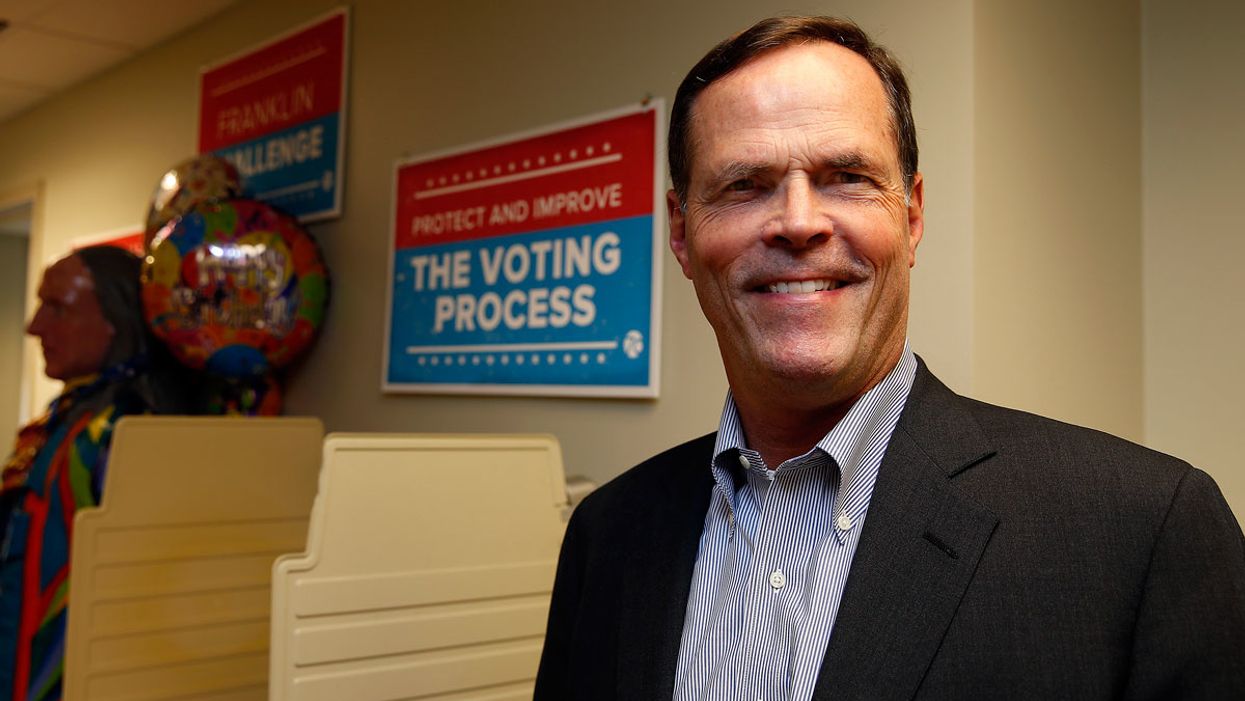David Thornburgh has spent his career managing civic engagement programs in Pennsylvania, no surprise given that he was raised by parents focused on public and community service. Before being named president and CEO of the Committee of Seventy, which successfully fought for campaign contribution limits and an ethics board in Philadelphia, the Haverford College grad ran the Fels Institute of Government at the University of Pennsylvania. He also conducted a 13-year run as executive director of the Economy League of Greater Philadelphia. His answers have been lightly edited for clarity and length.
What's the tweet-length description of your organization?
Founded by business and civic leaders in 1904, the Committee of Seventy (C70) is a nonpartisan, nonprofit advocate for better government in Philadelphia and Pennsylvania.
Describe your very first civic engagement.
I was raised in a family that values public service. My father, Dick, served two terms as governor of Pennsylvania and was U.S. attorney general for three years ending in 1991. My mother, Ginny, is a lifelong advocate for people with disabilities. I guess my first direct involvement was as a surrogate speaker in my dad's first race for governor in 1978, when I was 19. Pretty thrilling to have a chance to speak in front of hundreds of people at such a young age!
What was your biggest professional triumph?
Most recently, I co-founded an "open source" statewide redistricting competition called Draw the Lines PA to push back on partisan gerrymandering. With our free software and data, almost 4,500 Pennsylvanians have now taken the job of drawing congressional maps into their own hands. We've proved that our citizens are ready, willing and able to reclaim redistricting from the hands of partisan operatives.
And your most disappointing setback?
I was a national finalist for a White House fellowship in the early '90s but didn't make the final cut. That was the one that got away!
How does some aspect of your identity influence the way you go about your work?
My father is my role model — a thoughtful, compassionate, disciplined public leader of the highest integrity who exemplified the best of the Republican Party of his day. He said to me once that the GOP was at its best as the party of reform. It saddens me that the party has left people like him behind.
What's the best advice you've ever been given?
Early on, several people advised me not to go to law school if I didn't want to practice law. I took their advice, instead got a masters in public policy from Harvard's Kennedy School, and things seemed to have worked out just fine.
Create a new flavor for Ben & Jerry's.
Good Govern Mint.
What's your favorite political movie or TV show?
Until somebody makes a movie out of "The Power Broker," Robert Caro's biography of New York's legendary Robert Moses, my pick goes to "The Candidate," which still holds up after all these years. What do we do now?
What's the last thing you do on your phone at night?
I'm really trying to pick up my phone less. Social media has become such a dark, destructive, divisive force.
What is your deepest, darkest secret?
I'm the proud owner of a vintage 1991 VW Westfalia camper, which early next year we're going to wrap with C70's political reform messages — call it the Voteswagon — and barnstorm across Pennsylvania. Can't wait!




















Trump & Hegseth gave Mark Kelly a huge 2028 gift